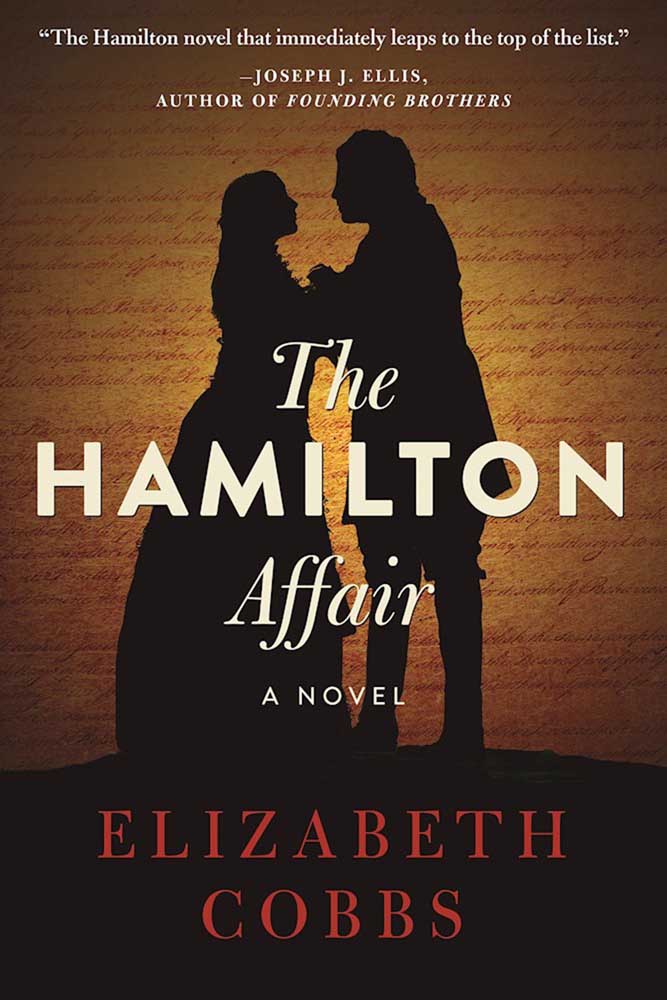Inside America’s first sex scandal with Alexander Hamilton
Published 12:00 am Sunday, August 7, 2016

- Amazon via Tribune News Service"The Hamilton Affair" by Elizabeth Cobbs
“The Hamilton Affair” By Elizabeth Cobbs (Arcade, 408 pages, $25.99)
If ever there were a time to publish a work of historical fiction about the life and loves of Founding Father Alexander Hamilton, it’s now. Hamilfans have pored over Ron Chernow’s biography “Hamilton” — still atop the best-seller list — searching for the nuggets of inspiration behind the genius of Lin-Manuel Miranda’s Broadway supernova. The “Hamilton” soundtrack is on endless repeat, and our “Hamiltomes” (the musical’s libretto) adorn our coffee tables.
Now getting in on the “Hamilton” mania is Elizabeth Cobbs with “The Hamilton Affair.” Even the book’s jacket art bears a striking resemblance to the posters on the doors of the Richard Rodgers Theater in New York, where the musical is performed.
The title refers to the sordid tale of Hamilton’s extramarital affair with Mrs. Maria Reynolds, the sex scandal that rocked our young nation after Hamilton, confronted by his political enemies about alleged corruption, tried to exonerate himself by circulating an 80-page pamphlet revealing himself as a no-good husband paying hush money to his lover’s spouse. But if you want to read the juicy details of this infamous booty call, you’ll have to wait for it — they appear toward the end of the novel.
Cobbs, who has written five books on American history and is currently a professor of American History at Texas A&M University, structures the novel as vignettes from the lives of Hamilton and Elizabeth Schuyler, his devoted wife, from their youth through their deaths, one an untimely national scandal, the other noteworthy for its delay. (Schuyler died at age 97.)
Hamilton’s story begins in his native St. Croix, where as a precocious boy he worked the docks of Christianstead with “much on his mind,” supporting his disgraced mother and dodging judgmental glares. Eliza’s story begins in bucolic Saratoga, New York, at her family’s sprawling estate where life is “perfect and complete, brimmed with the infinite possibilities.” He’s the talented kid from the wrong side of the tracks, and she’s the girl who has everything except love. (I’ve taken the liberty of writing the copy for the film trailer.)
When we finally get to the Hamilton-Schuyler meeting, at a Schuyler estate dinner at which Hamilton is on a mission to gather more troops for General Washington, we have seen Hamilton show promise as a young revolutionary destined for greatness and know Eliza to be “the levelheaded sister, with her practical shoes and prudent advice.” Hamilton is the romantic lead straight out of a Jane Austen novel, dashing and handsome, and for our indifferent Eliza — still single at the “advanced age of 22” — “no one roused her as he did.”
Hamilton’s dalliance with Reynolds, the enchantress who brought about his political downfall, shifts the story from a Nicholas Sparks tale into Harlequin romance territory. We get passages like this: “For the space of a quick breath, an unreasoning anguish at losing Maria pierced his core. He couldn’t live without her. Not in the vicious atmosphere of the capital, where even his family’s needs overwhelmed him. Maria allowed him to forget everything.”
Cobbs tries to keep us on Team Alex (even though we have come to know and love Eliza). The affair with Reynolds becomes more evidence of his sympathy for the downtrodden: “He … both craved and pitied the vulnerable Maria, whom Reynolds exploited like a whore.” Even Eliza’s sister Angelica does damage control for Hamilton, reminding her sister that if she “hadn’t married a man who flew ‘so near to the sun,’ she would have spared herself grief, but forgone the exhilaration of seeing life through the eyes of an eagle.” Cobbs’ Hamilton is an ambitious yet morally complicated man so overwhelmed by his obligations to the nation that he makes an enormous blunder. But Hamilton’s flaws are part of what make him so intriguing. We hate the sin but love the sinner.
Historical fiction is tricky; authors have to walk a fine line between the facts, creative license and complete speculation. Cobbs is subtle with Hamilton. His frailties—- his ego, his temper, his insecurities — and his ability to play the game of politics ferociously are referenced but rarely put on display. He is a model of control but too restrained. Even the meeting between Thomas Jefferson, James Madison and Hamilton, during which he and the two Virginians iron out a compromise that charted the course of the country, was a subdued affair. “Alexander restrained himself from saying more. If he appeared zealous, he would never convince them.” Seeing him drop some “lyrical bombs,” to quote Miranda, would have been more fun.
Cobbs’ novel presents a thoroughly researched portrait of the Hamiltons that makes you feel like you are in the room where it happened. It’s a bouquet to obsessed Hamilfans, but this well-written novel is enough to keep the lay reader satisfied, too.






